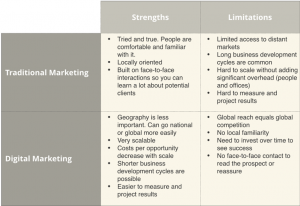— August 15, 2019

The Google Search algorithms are notoriously complex. There are dozens upon dozens of factors that Google considers when assessing a site’s ranking; those factors are weighted differently, and the exact algorithmic make-up changes on a regular basis.
Thankfully, Google has made it surprisingly simple for content writers to do their job and to create content that achieves search engine visibility. Google’s own search engineers have conceded that, for all the algorithmic complexity and churn, there’s essentially one huge factor that overshadows all the rest. Content writers who can capitalize on that one huge factor are positioned well for SEO success.
So what’s the secret?
In a word, relevance.
That’s not just a buzzword. It’s something that the Google algorithms actually measure and quantify. And according to Google’s internal experts, it’s the one thing that content writers should focus on as they pursue SEO-effective copy.
What is Relevance?
But how can Google possibly categorize something that sounds so nebulous?
The definition of relevance isn’t as fuzzy as you might think. Essentially, it boils down to user-centered content that serves a purpose.
That is to say, is the content useful?
Does it provide helpful, clarifying, and/or actionable insight to the user?
And is it related to the intentions of the search user? Does it meaningfully address their search query?
If you can honestly say yes to all of these questions, then there’s a good chance your content is indeed relevant in the eyes of Google.
Simple Steps for Writing Relevant Content
If you’re still uncertain about the relevance of your content, you’re in luck: Google’s Webmaster Guidelines actually offer some best practices for content writers. We’re going to summarize and paraphrase them here, because not only do they represent a good recipe for relevant content, but they also reflect good online content writing principles more generally.
Google’s advice is as follows:
- Write content primarily for the search engine users, not for the algorithms. If you’re thinking about how to appease the search bots, you’re going about it all wrong. Instead, step back and ask yourself how you can connect with the end user, answer their questions, and fortify them with good information. Using buyer personas may be valuable here.
- Don’t be deceptive. If your headline promises 5 Simple Steps to Improve Your Credit Score, the article should provide five simple steps for readers to improve their credit scores… plain and simple. Bait-and-switch routines will kill your relevance ratings.
- Avoid anything that’s designed to trick the search engines. Before attempting some sort of SEO gimmick, ask yourself: Would I do this if Google didn’t exist? If your answer is no, then it’s probably not worth doing.
- Consider the things that make your business or your website unique. What are some of the unique benefits and value points that you can offer? Make sure your content captures those things.
The bottom line: Relevance is the most important characteristic of digital copy, and it’s not as nebulous or as unattainable as you might think.
Digital & Social Articles on Business 2 Community
(49)







